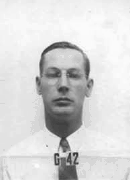Donald William Kerst is an American physicist known for his development of the betatron in 1940 and the Water Boiler Reactor at Los Alamos during the Manhattan Project.
Kerst received his bachelor’s degree in 1934 and his Ph.D. in Physics in 1937 from the University of Wisconsin. After working at General Electric for a year on x-ray tubes, Kerst joined the faculty of the University of Illinois at Urbana Champaign in 1938. There Kerst dedicated himself to developing a better particle accelerator. Kerst developed the betatron in 1940, becoming the first person to accelerate electrons with electromagnetic induction. Moreover, his betatron represented a shift in the development of particle accelerators, focusing on scientifically engineered design. After its development, the betatron was used in pioneering studies of nuclear and medical physics, including the production of energetic x-rays for use in cancer treatment.
During World War II, Kerst took a leave of absence from the University of Illinois to help with the war effort. First he worked with General Electric, where he built a portable betatron for detecting bomb duds. In August 1943, Kerst was selected to lead Group P-7 in the Experimental Physics Division at Los Alamos. His work involved designing and building the Water Boiler Reactor, which was intended to serve as a way to test critical mass calculations and study the effects of various tamper materials. In August 1944, Kerst became joint head of the G-5 group with Seth Neddermeyer and led efforts to use the betatron to study implosions.
After the war, Kerst returned to the University of Illinois, where he constructed betatrons of successively higher energies. From 1953 to 1957, Kerst was the technical director of the Midwestern Universities Research Association. In that role, he helped spur advancements in the field of accelerator physics. In 1957, Kerst joined the General Atomics division of General Dynamic’s laboratory at La Jolla, where he turned his attention to plasma physics and its role in the development of controlled thermonuclear power.
From 1962 until his retirement in 1980, Kerst was a professor at the University of Wisconsin. Kerst died on August 19, 1993, in Madison, Wisconsin.
For more information on Kerst, see his biography from the National Academy of Sciences.





